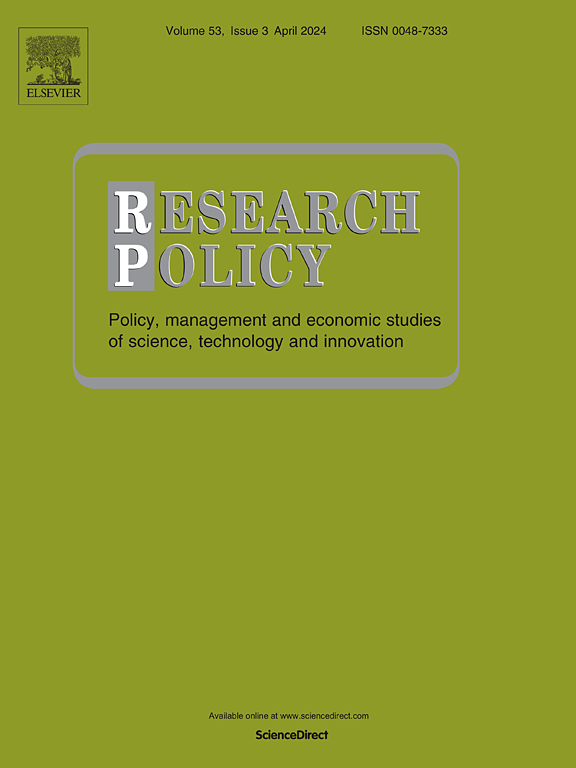股权众筹中的辛迪加:绩效与专家评价
IF 8
1区 管理学
Q1 MANAGEMENT
引用次数: 0
摘要
我们研究了股权众筹平台上的投资辛迪加,专家(辛迪加领导)代表其他投资者策划和投资早期公司,以换取共享利润。我们提供的证据表明,这种模式优于直接投资,特别是对于那些公开信息较少的非加州初创公司。其他分析表明,更好的表现来自于信息不对称的减少和交易成本的降低,通过更好地获得高质量的交易,以及更少的评估和监控创业公司的努力。通过一项大规模的现场实验,我们发现,当投资者获得有关辛迪加线索的网络规模和良好记录的信息时,他们更有可能探索辛迪加线索的概况,这表明投资者在评估线索时重视这两个属性。一项针对44位活跃投资者的调查显示,庞大的人脉被视为获得优质交易、声誉和尽职调查的信号,而业绩记录被视为潜在客户能力的信号和成功的直接衡量标准。这些研究结果表明,辛迪加模式可以提高股权众筹的市场效率,强调潜在客户的专业网络和过去的表现可以成为提高该模式采用率的有效策略。本文章由计算机程序翻译,如有差异,请以英文原文为准。
Syndication in equity crowdfunding: Performance and the evaluation of experts
We study investment syndication on an equity crowdfunding platform where experts (syndicate leads) curate and invest in early-stage firms on behalf of other investors in exchange for shared profit. We provide evidence that this model outperforms direct investments, especially for non-Californian startups with less publicly available information. Additional analyses suggest the better performance comes from reduced asymmetric information and lower transaction costs through better access to quality deals and lower effort for evaluating and monitoring startups. Using a large-scale field experiment, we find that investors are more likely to explore syndicate leads’ profiles when provided information about their network size and favorable track record, suggesting that investors value these two attributes when evaluating leads. A survey of 44 active investors shows that large networks are perceived as signals of access to quality deals, reputation, and due diligence, while track record is perceived as a signal of leads’ ability and a direct measure of success. These findings suggest that the syndication model can enhance market efficiency in equity crowdfunding and that emphasizing leads’ professional networks and past performance can be an effective strategy for increasing adoption of the model.
求助全文
通过发布文献求助,成功后即可免费获取论文全文。
去求助
来源期刊

Research Policy
MANAGEMENT-
CiteScore
12.80
自引率
6.90%
发文量
182
期刊介绍:
Research Policy (RP) articles explore the interaction between innovation, technology, or research, and economic, social, political, and organizational processes, both empirically and theoretically. All RP papers are expected to provide insights with implications for policy or management.
Research Policy (RP) is a multidisciplinary journal focused on analyzing, understanding, and effectively addressing the challenges posed by innovation, technology, R&D, and science. This includes activities related to knowledge creation, diffusion, acquisition, and exploitation in the form of new or improved products, processes, or services, across economic, policy, management, organizational, and environmental dimensions.
 求助内容:
求助内容: 应助结果提醒方式:
应助结果提醒方式:


